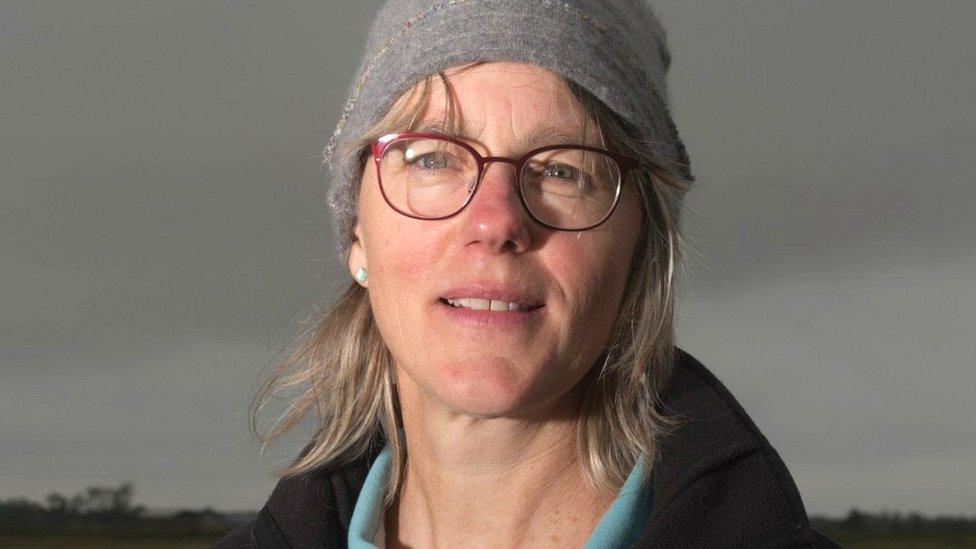Deer do 'high levels of damage' to waterways, report
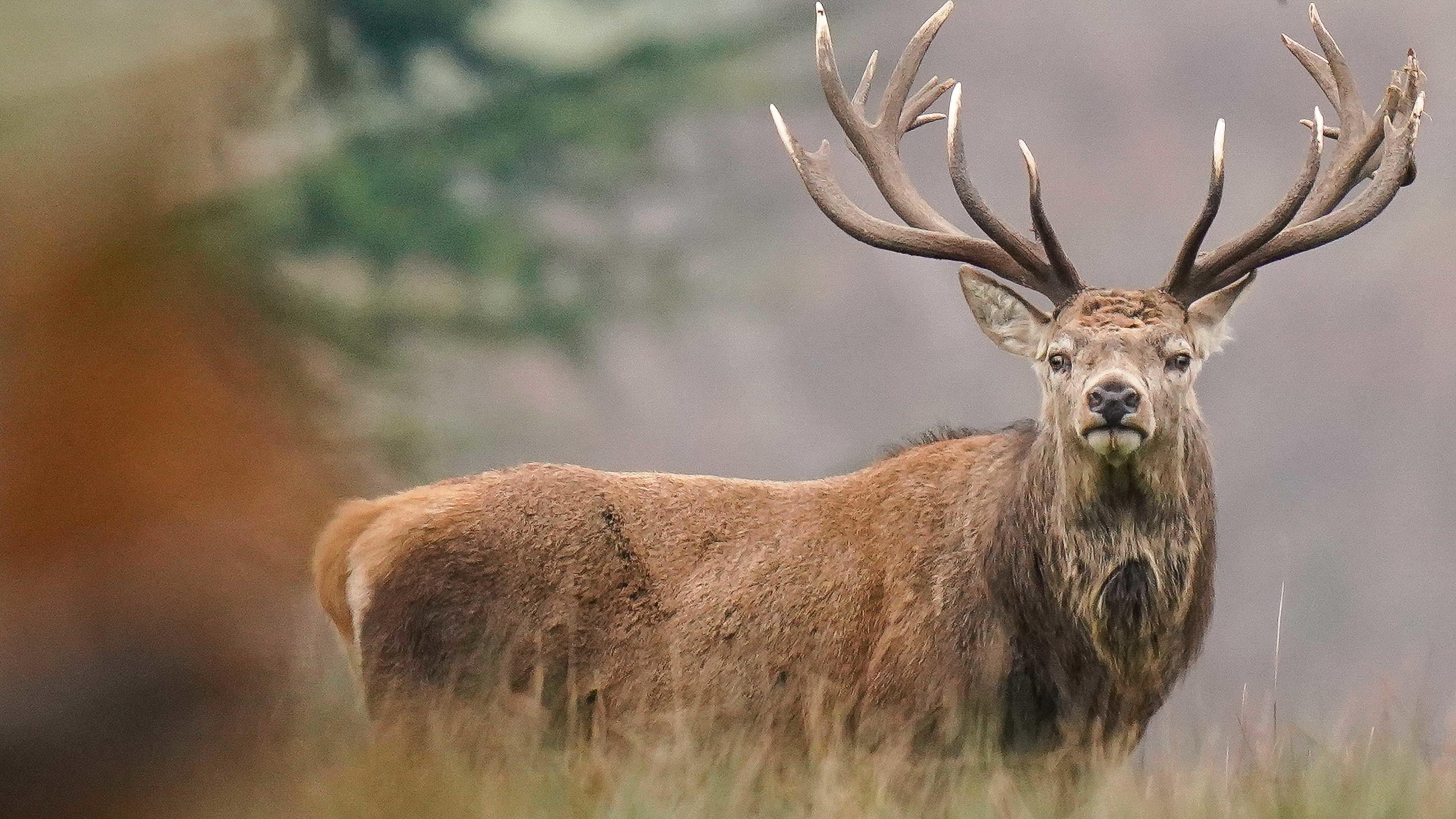
1,172 of the estimated 4,500 deer on the Broads are red deer
- Published
Deer living in protected wetlands are causing "high levels of damage" by grazing wetland plants and eating farmers' crops, a report has said.
The study was commissioned by the Broads Authority, external, which is responsible for managing the Norfolk and Suffolk Broads.
A spokesperson said: "The findings highlight significant negative effects, particularly on fen and woodlands."
The report warned there is a need for "immediate action" to control numbers.
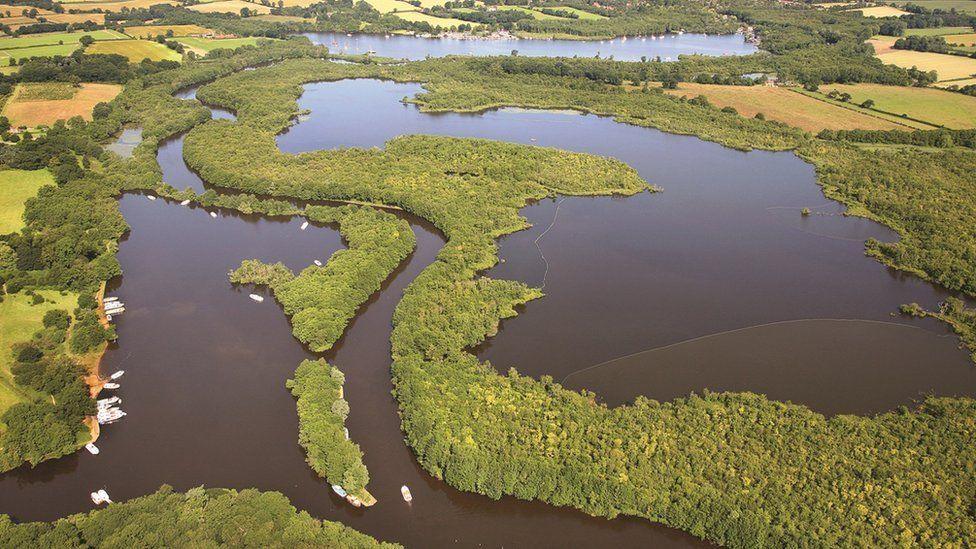
Drones with high-tech thermal and high-definition cameras surveyed 203 sq km (126 sq miles) of the Broads at night or early in the morning in February 2024
"Almost all fen areas show high levels of damage, with tracks and wallows causing considerable disruption to habitat structure and composition, as well as significant harm to fen plant communities," the spokesperson said.
Deer grazing can also result in a decline in habitats for birds, insects and other mammals, the report said.
Historically, deer numbers were low, but they have increased across East Anglia since 2005.
Experts used thermal imaging to track the movements of the deer and estimated about 4,500 live in the Broads.
Chinese water deer were the most populous (1,997), followed by red deer (1,172), muntjac (1,028) and roe deer (255).
Red and roe deer are native UK species, and the report said red deer were "mostly introduced" to the Broads.
Key predators such as wolves are extinct in the UK, meaning culling is the only option to manage numbers.
Only Calthorpe Broad, near Stalham, Norfolk, culls deer, as reported by the Local Democracy Reporting Service.
The report highlighted crop damage on fields adjacent to waterways, adding landowners "consider fens in particular as deer refuges, making the control measures more difficult".
Some species of deer can eat over 7kg (15lb) of food a day, often sourced from woodlands, cereal crops and gardens, it said.
The drone survey was done in partnership with the Forestry Commission and the Norfolk Farming and Wildlife Advisory Group and will be repeated this month.
The surveys will "inform landowners what controls are required in the future", the authority said.
Get in touch
Do you have a story suggestion for Norfolk?
Follow Norfolk news on BBC Sounds, Facebook, external, Instagram, external and X, external.
Related topics
- Published5 December 2024
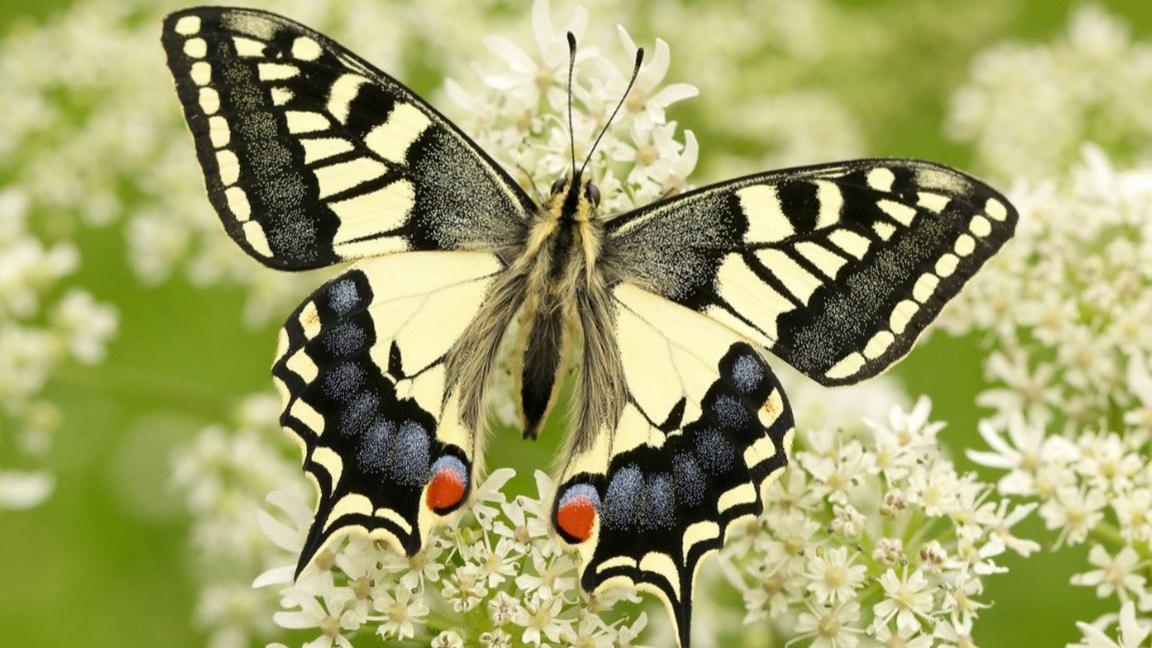
- Published8 January 2024
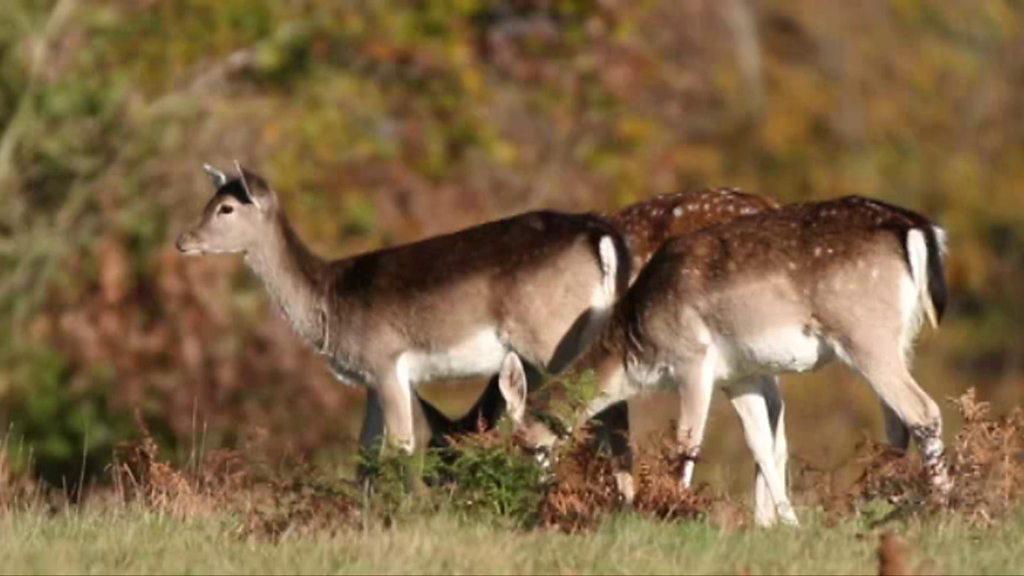
- Published8 August 2023
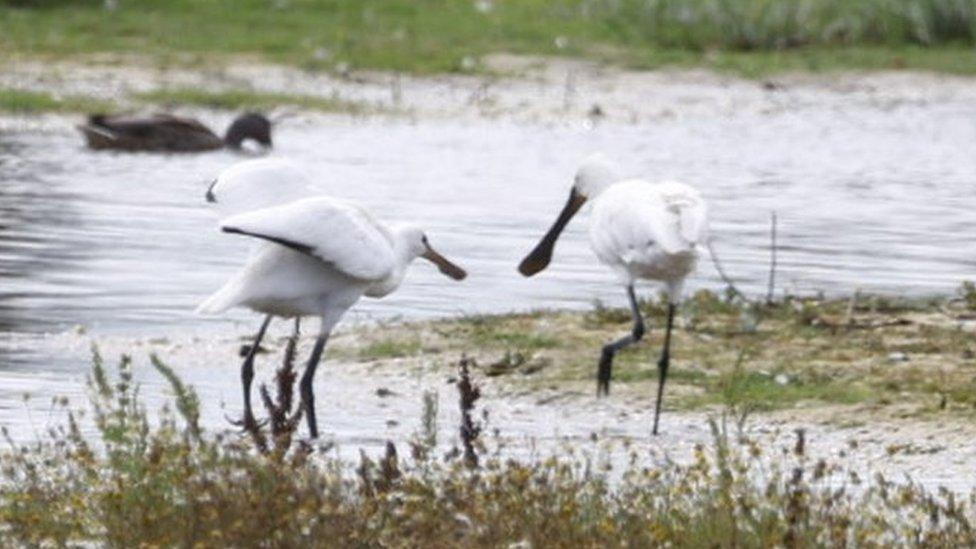
- Published28 October 2021
